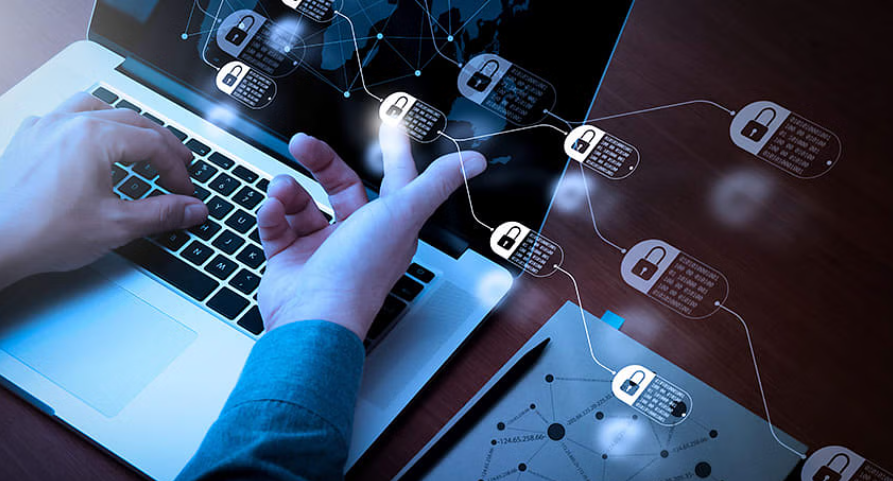Exploring Blockchain Beyond Cryptocurrency: Real-World Applications You Didn’t Know About
Blockchain technology is widely known as the backbone of cryptocurrencies like Bitcoin and Ethereum. However, its potential goes far beyond digital currencies. Today, blockchain is transforming various industries by enhancing security, transparency, and efficiency in ways you might not expect. This article explores the fascinating real-world applications of blockchain technology beyond cryptocurrency—applications that could revolutionize how businesses and governments operate.
What Is Blockchain Technology?
At its core, blockchain is a decentralized digital ledger that records transactions across multiple computers in a way that ensures the data is immutable and transparent.
- Decentralization: Unlike traditional systems managed by a single authority, blockchain operates on a network of computers (nodes), reducing the risk of failure or manipulation.
- Immutability: Once information is recorded on a blockchain, it cannot be altered or deleted.
- Transparency: All participants in the blockchain network can view the transactions, fostering trust and accountability.
These core features open doors for blockchain applications well beyond cryptocurrencies.
See also: The Rise of 5G: What You Need to Know About the Next Generation of Connectivity
Real-World Applications of Blockchain Technology
1. Supply Chain Management
Blockchain enhances supply chain management by providing full traceability of products from origin to end consumer. This ensures authenticity, reduces fraud, and improves overall efficiency.
- Companies like IBM and Walmart use blockchain to track food products, ensuring safety and transparency.
- Immutable records prevent counterfeit goods from entering the market.
- Automated tracking reduces delays and errors, streamlining logistics.
2. Healthcare
The healthcare sector benefits significantly from blockchain’s ability to securely store and share sensitive patient data.
- Patients control access to their health records, improving privacy.
- Medical providers can share patient data securely and efficiently.
- Blockchain ensures data integrity for clinical trials, enhancing trust in research.
For example, Odisha, India, uses blockchain technology in its trauma care system through the Shakti app.
3. Voting Systems
Blockchain can revolutionize electoral processes by making voting systems transparent, secure, and accessible.
- Every vote can be securely recorded and publicly verified.
- The immutability of blockchain prevents vote tampering and fraud.
- Secure remote voting could increase voter participation.
Platforms like MiVote are pioneering blockchain-based voting systems.
4. Identity Management
Blockchain supports the concept of self-sovereign identity, where individuals own and control their digital identity.
- Reduces the risk of identity theft.
- Simplifies verification processes such as KYC.
- Helps vulnerable populations, such as refugees, maintain official identification.
5. Real Estate
Blockchain streamlines real estate transactions by providing transparent property ownership records.
- Smart contracts automate processes like sales and lease agreements.
- Ownership disputes and fraud are reduced with verifiable records.
- Property transfers become faster and more cost-effective.
6. Energy Sector
Blockchain enables peer-to-peer energy trading and better grid management.
- Individuals can trade excess renewable energy directly.
- Transparent renewable energy certificate trading supports green initiatives.
- Companies like Power Ledger offer decentralized energy markets.
7. Intellectual Property Rights
Blockchain protects creative works by recording ownership and creation dates immutably.
- Smart contracts automate royalty payments.
- Transparent tracking reduces copyright infringement.
8. Education
Academic institutions can leverage blockchain to securely issue and verify credentials.
- Students’ records become tamper-proof.
- Lifelong learning records can be consolidated and verified across institutions.
- Prevents fraud in certifications and degrees.
9. Insurance
Blockchain transforms insurance by automating claims and reducing fraud.
- Smart contracts enable instant claim settlements.
- Transparent data reduces false claims.
- Personalized policies can be developed using blockchain data insights.
Companies like Lemonade have incorporated blockchain for efficient claims processing.
10. Agriculture
Blockchain increases food safety and supply chain efficiency.
- Tracks agricultural products from farm to table.
- Ensures fair trade and ethical sourcing.
- Reduces waste through improved logistics.
11. Entertainment and Media
Blockchain empowers artists and content creators.
- Enables direct support from fans without intermediaries.
- Ensures transparent royalty distribution.
- Protects against unauthorized content sharing.
Platforms like LBRY utilize blockchain for decentralized content distribution.
12. Government Services
Governments use blockchain to improve transparency and efficiency.
- Secure public records, such as land registries and licenses.
- Streamlined service delivery reduces bureaucracy.
- Enhanced data security protects citizen information.
13. Environmental Protection
Blockchain facilitates sustainability initiatives.
- Transparent carbon credit trading.
- Verification of ethical sourcing and sustainable practices.
- Better tracking of waste management programs.
Energi Mine incentivizes energy conservation using blockchain rewards.
14. Transportation and Logistics
Blockchain optimizes shipment tracking and vehicle history records.
- Real-time tracking reduces delays.
- Efficient routing lowers costs.
- Transparent maintenance records prevent fraud.
15. Legal Industry
Blockchain modernizes legal processes.
- Smart contracts automate agreement enforcement.
- Secure evidence preservation supports legal disputes.
- Transparent records simplify conflict resolution.
16. Retail and E-Commerce
Blockchain builds consumer trust through transparency.
- Verifies product authenticity.
- Enables transferable loyalty rewards.
- Provides full supply chain visibility.
17. Humanitarian Aid
Blockchain increases transparency and efficiency in aid distribution.
- Tracks donations ensuring they reach beneficiaries.
- Speeds up aid delivery.
- Provides identification for displaced persons.
18. Cybersecurity
Blockchain strengthens cybersecurity by securing data and authentication.
- Immutable records protect against tampering.
- Decentralized storage reduces attack risks.
- Enhances access control with cryptographic authentication.
19. Internet of Things (IoT)
Blockchain secures the expanding network of IoT devices.
- Authenticates devices to prevent unauthorized access.
- Creates transparent data-sharing ecosystems.
- Automates device interactions with smart contracts.
IOTA is a notable blockchain platform designed for IoT applications.
20. Art and Collectibles
Blockchain revolutionizes ownership and sales of art and collectibles.
- Verifies provenance and authenticity.
- Enables fractional ownership.
- Powers digital art sales through NFTs (Non-Fungible Tokens).
21. Tourism and Hospitality
Blockchain improves customer experience and security.
- Secures bookings and payments.
- Enhances loyalty programs.
- Streamlines identity verification for faster check-ins.
22. Food Safety
Blockchain ensures transparency in food production and distribution.
- Tracks food origins to prevent contamination.
- Speeds up product recalls.
- Builds consumer confidence in food quality.
23. Philanthropy
Blockchain enhances donor trust and aid efficiency.
- Tracks donations transparently.
- Provides real-time reporting.
- Minimizes administrative overhead.
Conclusion
Blockchain technology’s versatility extends far beyond cryptocurrencies. From healthcare and voting to energy and entertainment, its core attributes of decentralization, transparency, and immutability offer transformative benefits across industries. As blockchain adoption accelerates, it promises to foster trust, improve efficiency, and create innovative solutions to complex challenges worldwide.
Frequently Asked Questions (FAQs)
Q1: How does blockchain ensure data security?
Blockchain secures data using cryptography and decentralization, making records tamper-proof and transparent.
Q2: Can blockchain be integrated with existing systems?
Yes, blockchain can complement current systems, enhancing security and efficiency without full replacements.
Q3: Is blockchain environmentally sustainable?
While some blockchains consume high energy, newer consensus models like Proof of Stake significantly reduce environmental impact.
Q4: What are the main challenges to blockchain adoption?
Challenges include scalability, regulatory uncertainty, and lack of interoperability standards.
Q5: How can individuals benefit from blockchain technology?
Blockchain empowers individuals with control over personal data, improved privacy, and access to transparent services.



